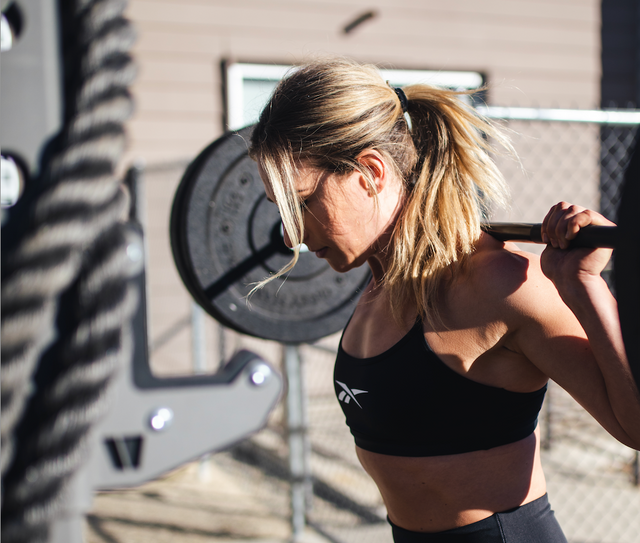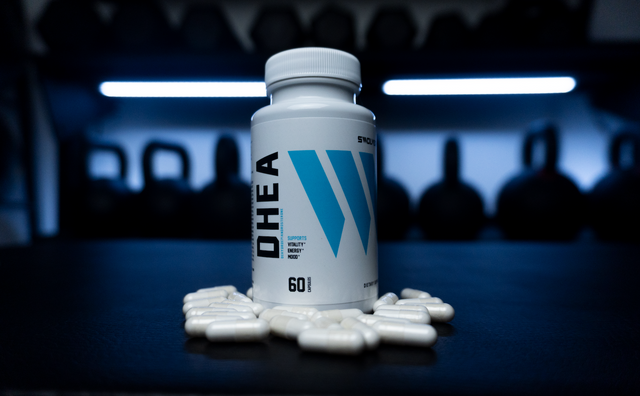In a world where hormonal balance plays a pivotal role in our overall well-being, the intersection of HCG and testosterone therapy is carving out a transformative path. Many individuals grapple with the challenges of low testosterone, which can lead to fatigue, weight gain, and diminished vitality. Enter HCG, a naturally occurring hormone that has garnered attention for its ability to enhance the effects of testosterone therapy while promoting a sense of rejuvenation. This powerful duo not only targets the physical symptoms of hormonal imbalance but also encourages emotional stability and improved quality of life.
As we delve into the numerous benefits of combining HCG with testosterone therapy, you'll discover how unlocking hormonal harmony can empower you to reclaim your energy, boost your confidence, and elevate your overall health.
Join us on this journey to understand the science behind these therapies and the positive impact they can have on your life's vitality.
Hormonal Imbalance in Men: How HCG Supports Testosterone Therapy
What Is Hormonal Imbalance?
Hormonal imbalance occurs when the body produces too much or too little of a hormone, disrupting vital biological processes such as metabolism, energy regulation, mood, and sexual function. The endocrine system—which includes the thyroid, adrenal, and pituitary glands—helps regulate these hormones. However, disruptions caused by chronic stress, poor nutrition, lack of exercise, or underlying medical conditions can negatively impact this system.
Common symptoms of hormonal imbalance in men include:
-
Fatigue
-
Weight gain or difficulty losing fat
-
Mood swings or depression
-
Brain fog and poor concentration
-
Low libido
-
Erectile dysfunction
In men, the most commonly impacted hormone is testosterone, the primary male sex hormone. When testosterone levels decline, the consequences can affect nearly every system in the body.
Hormonal imbalance has also been linked to metabolic syndrome, insulin resistance, and chronic inflammation (Traish et al., 2014).
Testosterone Decline and Its Effects
Testosterone is essential for:
-
Muscle mass and strength
-
Bone density
-
Sex drive and performance
-
Energy levels
-
Cognitive function
-
Mood stability
Testosterone levels naturally begin to decline around age 30 and continue to decrease at a rate of approximately 1% per year (Wu et al., 2008). This drop can be accelerated by poor sleep, increased body fat, inactivity, and environmental exposures like endocrine-disrupting chemicals.
Symptoms of low testosterone (hypogonadism) may include:
-
Reduced energy and stamina
-
Increased body fat (especially around the midsection)
-
Loss of lean muscle mass
-
Depression, anxiety, and irritability
-
Reduced sexual desire and erectile dysfunction
Research suggests that restoring testosterone levels in hypogonadal men can improve libido, mood, body composition, and insulin sensitivity (Bhasin et al., 2010).
How Testosterone Replacement Therapy (TRT) Works
Testosterone Replacement Therapy (TRT) is a medical approach used to raise testosterone levels through external sources like:
-
Injections (testosterone cypionate or enanthate)
-
Topical gels or patches
-
Implanted pellets
While TRT can significantly improve symptoms of low testosterone, it can also suppress the body’s natural production of the hormone, leading to:
-
Testicular shrinkage
-
Decreased sperm production
-
Reduced fertility
This happens because the hypothalamic-pituitary-gonadal (HPG) axis downregulates its own signal to produce luteinizing hormone (LH), which in turn affects testicular testosterone production.
What Is HCG (Human Chorionic Gonadotropin)?
Human Chorionic Gonadotropin (HCG) is a hormone naturally produced during pregnancy by the placenta. It plays a key role in supporting the corpus luteum, which produces progesterone to sustain early pregnancy. However, in men, HCG mimics the action of luteinizing hormone (LH)—a hormone that stimulates the testes to produce testosterone.
HCG is often used in combination with TRT to preserve testicular function, sperm production, and natural hormone signaling (Ramasamy et al., 2014).
How HCG Supports Hormonal Balance in Men
By mimicking LH, HCG encourages the Leydig cells in the testes to continue producing testosterone, even during testosterone therapy. This helps to:
-
Preserve testicular size
-
Maintain fertility and sperm count
-
Sustain intrinsic hormone production
-
Prevent complete suppression of the HPG axis
HCG is commonly administered 2–3 times per week, with doses ranging from 250–500 IU, though exact protocols may vary depending on the individual’s goals and medical supervision.
Clinical data confirms that combining HCG with TRT helps preserve spermatogenesis and testicular volume, reducing the long-term side effects of exogenous testosterone use (Coviello et al., 2005).
Additional Potential Benefits of HCG
Although controversial, some claim HCG offers additional benefits beyond testosterone support, including:
-
Enhanced mood and energy
-
Improved libido
-
Support in fat loss (through increased lipolysis)
However, current evidence on HCG’s use for weight loss is limited and mixed. The FDA has not approved HCG for weight loss, and its use in this context should be approached with caution.
A review concluded that there is insufficient evidence to support the use of HCG for fat loss, with no significant difference from placebo in calorie-restricted diets (Lijesen et al., 1995).
Hormonal imbalance—particularly involving low testosterone—can significantly impact a man’s physical, emotional, and sexual health. While Testosterone Replacement Therapy can be an effective solution, it often comes with trade-offs that can affect fertility and long-term hormone production.
Incorporating HCG alongside TRT offers a smarter, more comprehensive approach by preserving the body’s natural hormonal rhythm and supporting fertility outcomes. If you're considering TRT or are already on a hormone protocol, consult a qualified medical professional about whether HCG is a suitable addition to your regimen.
For more insights on hormone support, testosterone therapy, and optimizing performance, check out the Swolverine blog and The Swole Kitchen coaching platform.
The Role of Testosterone in Men's Health
Why Testosterone Is Critical to Male Physiology
Testosterone is often associated with masculinity and physical strength, but its impact on men’s health goes far beyond surface-level traits. As the primary male sex hormone, testosterone is responsible for the development of male reproductive tissues such as the testes and prostate, and it promotes secondary sexual characteristics like increased muscle mass, bone density, body hair, and a deeper voice during puberty.
However, testosterone’s role doesn’t stop at sexual development. It plays a critical part in maintaining metabolic function, cardiovascular health, and mental well-being throughout adulthood.
Testosterone is involved in red blood cell production, fat metabolism, insulin sensitivity, and mood regulation, making it essential for both physical and cognitive health (Kelly and Jones, 2013).
Testosterone and Overall Health
Adequate testosterone levels help regulate several key physiological systems, including:
-
Bone density: Reduces risk of osteoporosis and fractures
-
Muscle strength and mass: Maintains functional mobility and physical performance
-
Fat distribution: Affects central fat accumulation and metabolic risk
-
Red blood cell production: Enhances oxygen transport
-
Mood and cognition: Supports mental clarity, motivation, and mood stability
Low testosterone—clinically known as hypogonadism—can lead to:
-
Chronic fatigue
-
Depressed mood and irritability
-
Loss of lean muscle
-
Increased abdominal fat
-
Erectile dysfunction and low libido
-
Memory issues and poor concentration
Low testosterone has been linked to higher rates of cardiovascular disease, depression, type 2 diabetes, and all-cause mortality (Mulligan et al., 2006).
How HCG Enhances Testosterone Therapy
The Need for Complementary Support in TRT
Testosterone Replacement Therapy (TRT) can be effective in relieving symptoms of low testosterone, but exogenous testosterone introduces challenges. TRT suppresses the hypothalamic-pituitary-gonadal (HPG) axis, which reduces secretion of gonadotropin-releasing hormone (GnRH) and luteinizing hormone (LH)—both necessary for stimulating the testes.
This suppression leads to:
-
Testicular atrophy (shrinkage)
-
Decreased sperm production
-
Temporary or long-term infertility
Studies show that exogenous testosterone can reduce intratesticular testosterone by more than 90%, which directly impacts sperm count and fertility (Coviello et al., 2005).
How HCG Preserves Testicular Function
Human Chorionic Gonadotropin (HCG) is a naturally occurring hormone that mimics LH, stimulating the Leydig cells in the testes to continue producing testosterone—even during TRT. This mechanism:
-
Maintains testicular size
-
Stimulates spermatogenesis
-
Supports endogenous testosterone production
-
Reduces HPG axis suppression
Co-administering HCG with TRT helps preserve fertility and intratesticular testosterone, supporting both function and form (Ramasamy et al., 2014).
Fertility Preservation in TRT
For men planning to have children—especially younger individuals—HCG is a vital tool. Exogenous testosterone alone can drastically suppress sperm production, sometimes to near-zero levels. However, when HCG is introduced, it:
-
Supports sperm count and motility
-
Maintains testicular function and volume
-
Prevents long-term fertility loss associated with TRT
A randomized clinical trial found that low-dose HCG in combination with testosterone restored and maintained sperm production in healthy men (Hsieh et al., 2013).
Benefits of Combining HCG with Testosterone Therapy
Improved Hormonal Stability and Mood
One of the less talked-about advantages of HCG is its effect on hormonal consistency. Testosterone therapy alone can sometimes create hormone level fluctuations, leading to:
-
Irritability
-
Emotional instability
-
Brain fog or anxiety
By preserving the body’s own hormone signaling pathways, HCG helps stabilize mood and energy, reducing the side effects associated with hormonal spikes and crashes.
Men who used HCG alongside TRT reported better mood regulation and fewer emotional side effects compared to TRT alone (Kaminetsky et al., 2009).
Enhanced Metabolic and Body Composition Benefits
HCG may also have mild lipolytic effects, encouraging fat breakdown and enhancing metabolic function—especially when combined with testosterone. While not a fat-loss solution on its own, HCG’s support of endogenous testosterone and LH pathways contributes to:
-
Better fat-to-muscle ratio
-
Improved body composition
-
Enhanced training recovery and energy
Although data on HCG for fat loss is mixed, its synergistic support of hormonal pathways is promising for metabolic health when used alongside TRT (Lijesen et al., 1995).
Potential Side Effects and Considerations
Risks of HCG and Testosterone Therapy
While the combination of HCG and testosterone therapy offers significant benefits, it’s important to be aware of the potential side effects and risks associated with treatment. Like any form of hormone replacement therapy (HRT), careful monitoring is required.
Estrogen Imbalance
One of the most common side effects is an imbalance in estrogen levels. Exogenous testosterone can undergo aromatization, converting into estradiol—a potent form of estrogen. Elevated estrogen can result in:
-
Water retention
-
Gynecomastia (enlarged breast tissue in men)
-
Mood swings and irritability
Elevated estrogen is a documented complication of testosterone therapy, requiring aromatase inhibitor management in some patients (T’Sjoen et al., 2005).
Overstimulation of the Testes
While HCG stimulates the Leydig cells to support natural testosterone production, excessive doses may cause:
-
Testicular pain or swelling
-
Elevated estradiol levels
-
Desensitization of LH receptors in the testes
High-frequency HCG dosing can lead to Leydig cell desensitization, making the testes less responsive over time (Liu et al., 2000).
Medical History and Safety
HRT is not suitable for everyone, particularly individuals with:
-
Prostate cancer or elevated PSA
-
Cardiovascular disease
-
History of blood clots or stroke
A full medical screening, including hormone panels and physical exams, should precede any treatment plan.
TRT must be prescribed with caution in men with cardiovascular risk factors or a history of prostate disease (Bassil et al., 2009).
Who Should Consider HCG with Testosterone Therapy?
Symptomatic Men with Low Testosterone
Men diagnosed with hypogonadism often experience:
-
Fatigue
-
Reduced libido
-
Erectile dysfunction
-
Mood instability
-
Muscle loss and increased body fat
Combining HCG with TRT helps restore testosterone levels while maintaining fertility and testicular function.
HCG plays a protective role in preserving fertility during TRT by maintaining intratesticular testosterone production (Ramasamy et al., 2014).
Athletes and Post-Cycle Therapy (PCT)
Athletes and bodybuilders using anabolic steroids often suffer from suppressed natural testosterone and testicular atrophy. Incorporating HCG during post-cycle therapy helps:
-
Stimulate the HPG axis
-
Support natural testosterone restoration
-
Reverse testicular shrinkage and preserve fertility
HCG is widely used in PCT protocols to normalize hormonal balance and reproductive health post-anabolic steroid use (Menon, 2003).
Men on TRT Preserving Fertility
Exogenous testosterone suppresses sperm production, but when HCG is co-administered, it can help preserve spermatogenesis, making it especially valuable for:
-
Men trying to conceive
-
Younger men on TRT
-
Individuals seeking long-term hormonal health
Co-administration of HCG maintains sperm output in men receiving TRT (Hsieh et al., 2013).
The Science Behind HCG and Testosterone Therapy
How HCG and TRT Work Together
Testosterone production depends on luteinizing hormone (LH) stimulation of the Leydig cells. Exogenous testosterone suppresses this natural loop by downregulating GnRH and LH.
HCG mimics LH and directly stimulates the testes to continue producing testosterone. This prevents:
-
Testicular atrophy
-
Loss of fertility
-
Complete HPG axis shutdown
A 2005 study found that HCG administration preserved intratesticular testosterone in men receiving exogenous testosterone therapy (Coviello et al., 2005).
Hormonal Balance and Estrogen Control
While HCG can influence estradiol production, balanced dosing under medical supervision can prevent side effects. Maintaining optimal testosterone-to-estrogen ratios is key to long-term success.
A careful understanding of HCG’s effect on estrogen metabolism is necessary for safe and effective TRT management (Hayes et al., 2001).
How to Get Started with HCG and Testosterone Therapy
Step 1: Medical Evaluation
The process begins with a full clinical evaluation, including:
-
Symptom review
-
Bloodwork: Total and Free Testosterone, LH, FSH, Estradiol, SHBG, and CBC
-
Medical history and risk factor assessment
Baseline hormone values are essential for developing a targeted, personalized HRT protocol (Bhasin et al., 2010).
Step 2: Customized Treatment Plan
Based on lab results and clinical needs, your provider will:
-
Prescribe testosterone (e.g., cypionate or enanthate)
-
Include HCG (commonly 250–500 IU 2–3x per week)
-
Possibly add aromatase inhibitors (e.g., anastrozole) if estradiol levels rise
Ongoing monitoring ensures effective treatment with minimal side effects.
TRT protocols that include HCG are more likely to preserve fertility and optimize total hormonal health (Ramasamy et al., 2014).
Step 3: Lifestyle Optimization
Successful hormone therapy is supported by:
-
Resistance training and aerobic exercise
-
A protein-rich, whole-food diet
-
Adequate sleep and recovery
-
Stress management techniques
Lifestyle strategies combined with TRT reduce the risk of cardiovascular and metabolic complications (Grossmann et al., 2011).
Conclusion: Achieving Hormonal Balance for Better Health
Unlocking hormonal harmony through the combination of HCG and testosterone therapy offers a transformative path to improved health and well-being. By addressing the symptoms of low testosterone and supporting natural hormone production, this powerful duo can enhance physical vitality, emotional stability, and overall quality of life. The benefits of combining HCG with testosterone therapy are numerous, ranging from the preservation of testicular function and fertility to the promotion of stable hormone levels and improved mood.
As with any medical treatment, it is essential to approach hormone replacement therapy with a comprehensive understanding of the potential benefits and risks. Consulting with a healthcare professional who specializes in hormone therapy is crucial for developing a personalized treatment plan that meets your specific needs and goals. Regular monitoring and follow-up appointments ensure that the therapy remains effective and any necessary adjustments are made to optimize outcomes.
Ultimately, achieving hormonal balance is a journey that involves both medical intervention and lifestyle changes. By embracing a holistic approach that includes healthy habits, open communication with healthcare providers, and a commitment to overall well-being, individuals can unlock the full potential of HCG and testosterone therapy. This path to hormonal harmony offers the promise of renewed energy, confidence, and vitality, empowering individuals to reclaim their health and elevate their quality of life.













